TORONTO — Ontario's labour relations board would send a message that labour laws and collective bargaining rights no longer exist if it complies with a government request to declare a strike by provincial education workers illegal, a union lawyer argued Saturday.

Speaking at a hearing that will determine the legality of the walkout by 55,000 members of the Canadian Union of Public Employees, Steven Barrett urged the board's chair not to side with the Ontario government after it passed legislation that banned strikes and imposed a four-year contract on union members.
Thousands of workers, including education assistants, custodians and librarians, walked off the job on Friday in protest, and CUPE has indicated the strike could go on indefinitely.
Barrett, who called the legislation "Orwellian," argued the contract should be considered "imposed" because it was not produced through collective bargaining negotiations.
"Siding with the government here ... it actually sends a message that there's no more labour law, there's no more collective bargaining," Barrett told the hearing, which ran late into Saturday evening.
"Labour peace, which is imposed this way, isn't the labour peace the labour board should associate itself with."
The Progressive Conservative government included the notwithstanding clause in its education-worker legislation, saying it intends to use it to guard against constitutional challenges.
Board Chair Brian O'Byrne told Barrett the province had the right to invoke the notwithstanding clause under the constitution, even though it may have been "politically risky" to do so.
"Under our laws, governments can do this kind of thing legally. Even though some of us may find it distasteful or worse than that, they still have the right to do it," said O'Byrne.
"By law, when we have a collective agreement, then you're not supposed to strike. And the reality is there's a collective agreement, whether you like it or not," he said.
Barrett, citing case law, argued Ontario used the clause to address labour issues in an unprecedented and inappropriate way.
"The last ability to contest this assault is here and if you put an end to it, there's nothing left," he said. "If these protests are suppressed by an order that comes from you ... what is left for these workers to do? Just find another job?"
Saturday's hearing began at 9 a.m. and continued for more than 16 hours, with discussions between government lawyer Ferina Murji and CUPE's legal team growing heated at times. Murji accused union lawyers of acting with "complete disregard for respect and decorum."
Earlier in the day, Murji argued the labour board risks undermining the province's own labour laws if it fails to declare the walkout illegal.
"Ensuring that an unlawful strike is not allowed to continue is a very important labour relations purpose, and if you did not exercise your discretion to do so, it would significantly undermine the very clear prohibition on strike activity that is a key feature of the Labour Relations Act," she said.
Murji said such a walkout is illegal because the Labour Relations Act prohibits work stoppages while contracts are in operation. She also argued that CUPE leadership knowingly advised education workers to engage in an illegal strike.
She played video of CUPE-Ontario President Fred Hahn saying the union would provide the same benefits to workers that it does in any strike.
Murji also shared video of Laura Walton, president of CUPE Ontario's School Board Council of Unions, comparing the walkout to one that was planned in 2019.
CUPE contends the labour action is a political protest rather than a strike. The hearing has repeatedly heard deliberations over the definition of a strike.
It argued in its board filings that the goal of its members' action is "to express opposition through political protest to the (province's) decision to trample upon employees' constitutionally protected right to collectively bargain and right to strike."
"Irrespective of what label anyone puts on the activity, Mr. Chair, it is a work stoppage. And a work stoppage, with any other name, still amounts to a work stoppage and therefore a strike, full stop," Murji told the hearing.
The job action closed numerous schools, and the union has said the protest could continue indefinitely.
Barrett told O'Byrne that should he deem the strike legal, the job action could continue until the government repeals its new legislation or until the union and government negotiate its end.
"But that isn't your concern," Barrett told the chair. "The job of the labour board is to oversee the collective bargaining system, and in doing so give effect to Charter values and Charter rights. There are many ways in which the government could have avoided students not being in school ... they certainly didn't have to provoke the reason that we're here now, with respect to enacting this unprecedented, horrendous legislation."
CUPE had originally requested that both Education Minister Stephen Lecce and Andrew Davis, the assistant deputy minister, be called to testify before the board.
O'Byrne ruled that Lecce is exempt from testifying due to parliamentary privilege, but said Davis could be called to testify.
But after hours of delays, a lawyer for CUPE said he would not call upon Davis to provide evidence because documents the union wished to submit could not be made available.
The government's new law has set fines for violating the ban on strikes of up to $4,000 per employee per day – which could amount to $220 million for all 55,000 workers – and up to $500,000 per day for the union.
CUPE has said it will fight the fines, but will also pay them if it has to.
The British Columbia Teachers' Federation's representative assembly voted to send CUPE Ontario $1 million to help pay the fines, the union said in a post on its Twitter account. The donation comes a day after Unifor pledged to send $100,000 as a show of support for CUPE.
The hearing will resume at 7 a.m. on Sunday, which O'Byrne said he hopes will be its final day.
This report by The Canadian Press was first published Nov. 5, 2022.
Nicole Thompson and Tyler Griffin, The Canadian Press
Aaron D'Andrea - Yesterday
Prime Minister Justin Trudeau says his government is weighing “all different options” when asked Friday whether Ottawa will seek to amend the use of the controversial notwithstanding clause.

Prime Minster Justin Trudeau announces the GST credits being offered to families on Nov. 4 at the Dennis Timbrell Community Centre in North York, Ont.
Trudeau’s comments come as 55,000 Ontario education workers took to the picket lines on Friday in defiance of the provincial government, which passed a law Thursday pre-emptively using the notwithstanding clause to make job action “illegal.”
Read more:
“This is something all Canadians who value the freedoms, the rights, the opportunities that Canada gives them and gives us all, should be standing up to be very concerned about,” Trudeau told reporters during a news conference in North York, Ont.
“And yes, this is the federal government that stands up for people’s rights and freedoms and we are absolutely looking at all different options.”
Ontario education workers defy provincial legislation and strikeDuration 2:32 View on Watch
Trudeau had been asked by a reporter whether he would consider potential legislative amendments to change when the controversial notwithstanding clause can be used.
The law involving the notwithstanding clause came after Ontario’s Progressive Conservative government could not reach an agreement with the Canadian Union of Public Employees. The union has been seeking wage increases for the education workers, and indicated it would strike on Friday if an agreement was not met.
Video: CUPE members protest outside Ontario legislature
In response, Premier Doug Ford’s government pre-emptively passed a law that banned a strike, and set fines for violating the ban of up to $4,000 per employee per day -- which could amount to $220 million for all 55,000 workers -- and up to $500,000 per day for the union.
CUPE has said it will fight the fines, and that its job actions will continue indefinitely.
Ontario parents wonder what’s next as education workers remain on strike
The Progressive Conservative government included the notwithstanding clause in its legislation, saying it intends to use it to guard against constitutional challenges to its strike ban. Ontario Education Minister Stephen Lecce justified its use by citing the need to keep students in school following a disruptive two-and-a-half years of learning due to the COVID-19 pandemic and its restrictions.
Read more:
The notwithstanding clause, or Section 33 of the Charter of Rights and Freedoms, gives provincial legislatures or Parliament the ability, through the passage of a law, to override certain portions of the Charter for a five-year term. Effectively, it allows governments to pass pieces of legislation notwithstanding their potential violations of Charter rights.
“Proactive use of the notwithstanding clause is actually an attack on people’s fundament rights, and in this case, is an attack on one of the most basic rights available, that of collective bargaining,” Trudeau said in his comments on Friday, adding that "all options" were on the table.
“There are a lot of people, parents like me who have kids in Ontario schools, that are concerned about the job actions, the strikes, but I can tell you all parents, all Canadians, should be extremely worried about suspension of our most fundamental rights and freedoms.”
Video: CUPE shouts ‘shame’ as Ontario government votes to impose contract on education workers
Trudeau had asked Ford on Wednesday not to use the notwithstanding clause, a measure the Ontario premier has used previously.
Ford invoked the notwithstanding clause in June 2021-- for the first time in the province’s history -- to restore parts of the Election Finances Act that had previously been declared unconstitutional. Ontario argued the move was necessary to protect elections from outside influence, while critics accused the government of trying to silence criticism.
Ford had also previously threatened to use the clause in 2018, when his government intended to cut Toronto city council seats during a municipal election. It sparked outrage, but the clause ultimately wasn’t invoked because of how a related court process unfolded.
Read more:
In June, Quebec passed a major reform to the province’s signature language law that reasserts the right of Quebecers to live and work in French. Premier Francois Legault has said the entire bill is covered by the notwithstanding clause. In August, a judge suspended two articles of that language law, citing risks to access to justice, until the case can be heard on its merits.
Quebec also used the clause in its religious symbols law that was adopted in 2019. Bill 21 prohibits public sector workers who are deemed to be in positions of authority, including teachers, police officers and judges, from wearing religious symbols such as hijabs and turbans on the job.
“It would be much better if instead of the federal government having to weigh in and say, ‘You really shouldn’t do this, provincial governments,’ it should be Canadians saying, ‘Hold on a minute; you’re suspending my right to collective bargaining? You’re suspending fundamental rights and freedoms that are afforded to us in the Charter?’” Trudeau said.
“The Charter of Rights and Freedoms can’t become a suggestion. It is something that has built Canada in fundamental ways by recognizing those foundational rights and freedoms that make us one of the best countries in the world.
“The outrage we’re seeing across the country right now at this latest use, building on top of previous uses that I have consistently condemned, is a moment for all Canadians to reflect and say, ‘Yeah, our fundamental rights are not to be cancelled away by governments who want to get things done in the easiest and most efficient way possible at the cost of people’s fundamental freedoms.’”
-- with files from Global News’ Isaac Callan, Colin D'Mello and The Canadian Press



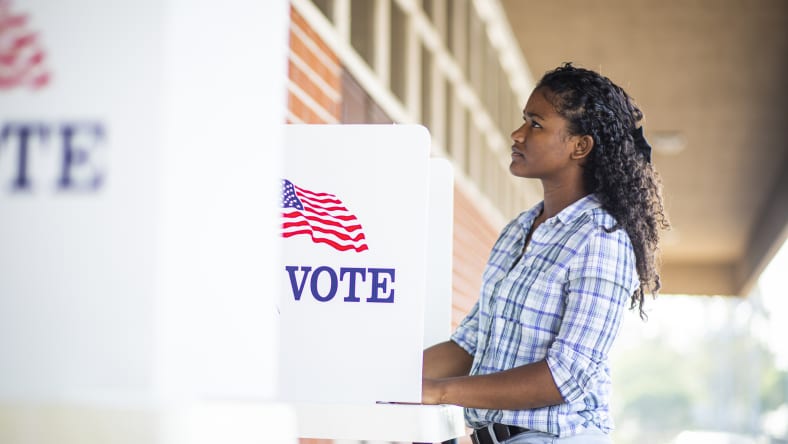 (Getty Images)
(Getty Images)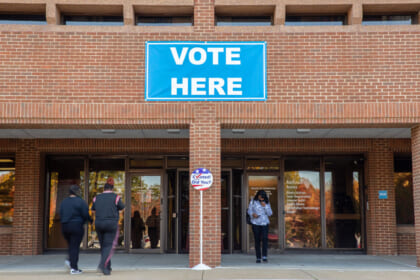
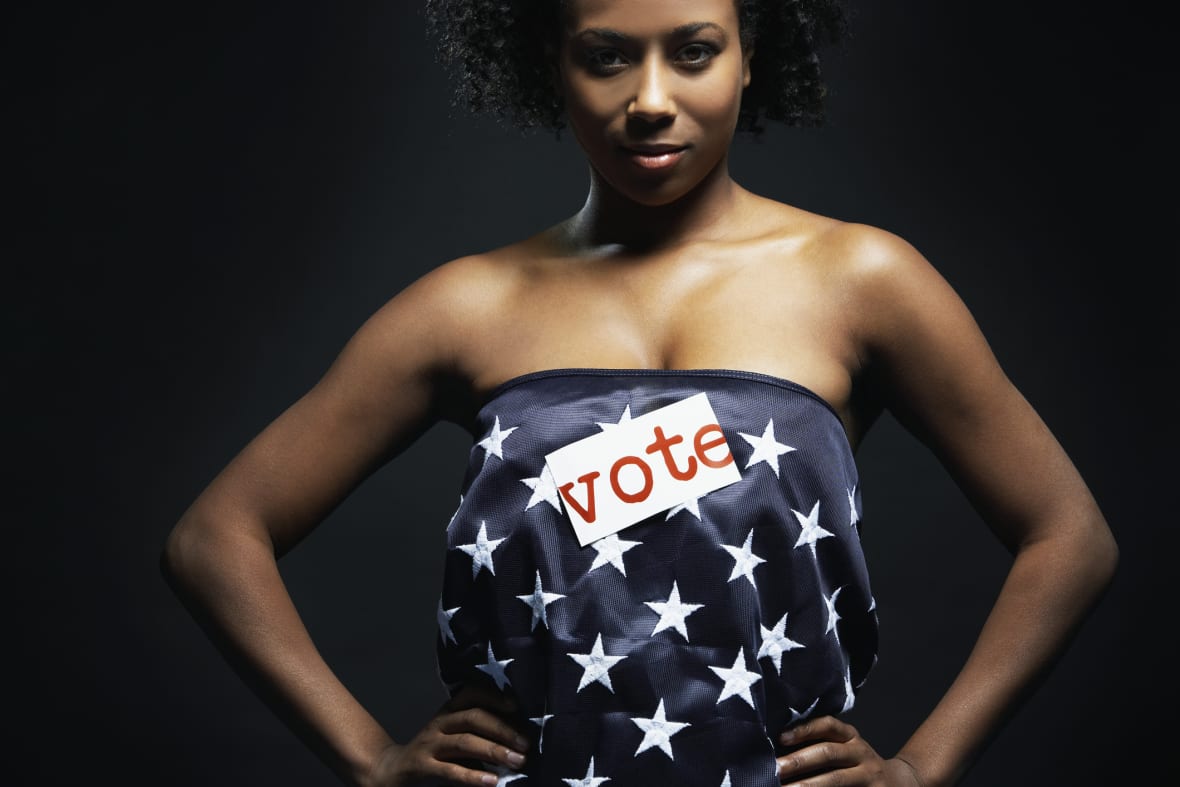

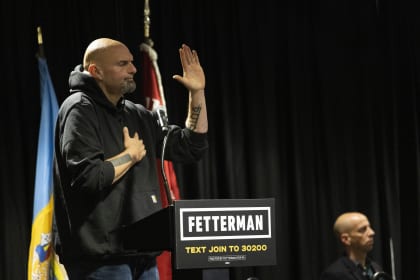


.jpg)

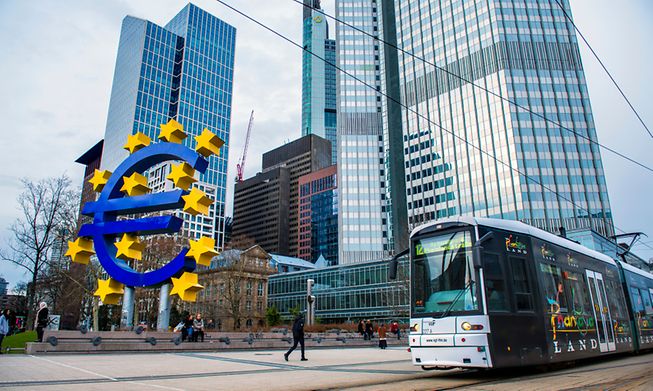



:quality(70)/cloudfront-eu-central-1.images.arcpublishing.com/thenational/WOV55RSZRFEO5MGJQTNIMJ5REI.jpg)
:quality(70)/cloudfront-eu-central-1.images.arcpublishing.com/thenational/YNRN5R7LUFDUJIOQZ5UXR7AWS4.jpg)
:quality(70)/cloudfront-eu-central-1.images.arcpublishing.com/thenational/XOFLKIZSNRGIZFIOHTAR3DANRE.JPG)
:quality(70)/cloudfront-eu-central-1.images.arcpublishing.com/thenational/OG7KOW2ZBNLWUDLKSEJW67GWLU.jpg)
:quality(70)/cloudfront-eu-central-1.images.arcpublishing.com/thenational/IODTXFMVTSZNNVHDEXRZJCKLVQ.jpg)
:quality(70)/cloudfront-eu-central-1.images.arcpublishing.com/thenational/5YZTHK6G3NA25BQE4KVGCORIIY.JPG)
:quality(70)/cloudfront-eu-central-1.images.arcpublishing.com/thenational/IF2HVVQZB5A4HJR5CZXO5KUJNQ.JPG)
:quality(70)/cloudfront-eu-central-1.images.arcpublishing.com/thenational/KT7MOCI66BAGTHESHFZ4XKESKI.JPG)
:quality(70)/cloudfront-eu-central-1.images.arcpublishing.com/thenational/QDTO2GBSXZGALISK56URDTCR2M.JPG)
